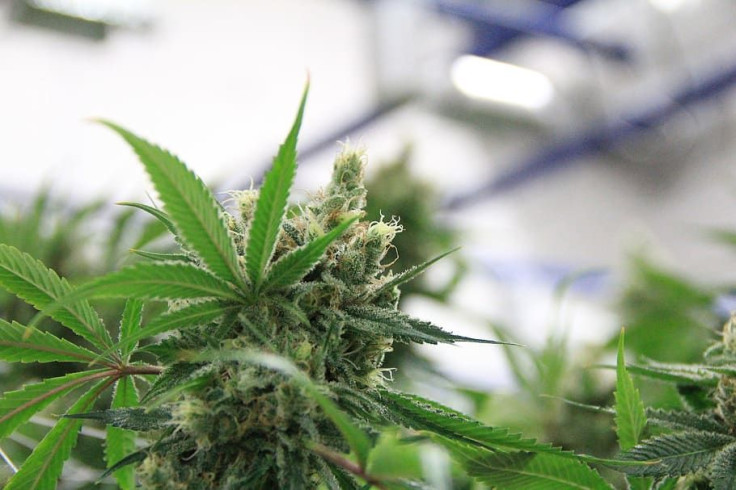Cannabis Freedom Is Stalled In Washington, DC

Dominique Easley first relied on cannabis to help him break an addiction to opioids he was prescribed to deal with the pain from multiple football injuries suffered in both his college and pro football career.
As Easley explains, medical cannabis, legal in California, helped him sleep and gave him a path to begin self-healing. His younger sister, too, has been helped by cannabis in her lifelong fight against fibromyalgia.
Easley’s college teammate Jordan Reed, who won all-pro accolades in the National Football League, was never an opioid user. He began exploring cannabis after several concussions and a second foot surgery and became convinced of its value as a holistic medicine for fighting pain and depression.
While Reed was investing in legal cannabis in Colorado, and later in other states, Easley pursued licenses in New Jersey. The two joined eventually joined forces to form BPH Legacy Partners with other investors to seek multiple cannabis licenses, with a focus on rural areas with high minority populations plagued by opioid addiction.
As they tell their stories of the benefits of cannabis use, Easley and Reed also spread awareness that historic suppression of African Americans is behind the prohibition of the medicinal herb. The pair seek to remove the federal Schedule I listing that even bars marijuana research and to remove barriers to minority participation in legal cannabis enterprises.
Schedule I and the Ban on Cannabis Research
President Roosevelt’s 1937 Marijuana Tax Act was driven by overt racism, as newspapers proclaimed that “this stuff makes white women and black men have sex. Yet marijuana was listed as a legal medicine in the United States until 1942.
Attorney General John Mitchell declared marijuana a Schedule I drug under the 1970 Controlled Substances Act, fueled by President Nixon’s eagerness to prosecute the antiwar left and black males. Nixon’s own Shafer Commission had declared cannabis as safe as alcohol, but the Schedule I listing declared it a drug with no medical value and a high potential for abuse.
The DEA overruled an unscheduling recommendation by Francis Young, a DEA administrative law judge, who had declared that, “Marijuana, in its natural form, is one of the safest therapeutically active substances known to man.” Four other petitions also bit the dust.
According to the Drug Policy Alliance, the DEA still justifies the Schedule I listing on the lack of research and continues to bar private laboratories from engaging in scientific research into its beneficial qualities. Their intransigence is baffling to state lawmakers, physicians, and citizens as well as to foreign researchers, who have demonstrated multiple beneficial uses for cannabinoids.
The latest Gallup Poll shows overwhelming public support for full legalization or decriminalization (removing the Schedule I stigma). Meanwhile, opioids, which are under Schedule I, killed nearly 50,000 Americans in 2019, up from just 21,000 in 2010. Virtually no one dies from using cannabis, yet federal action has not been forthcoming, most recently because of President Biden’s lifelong opposition to legalization.
Pitfalls for Minority Entry into Cannabis Marketing
Since California in 1999 legalized marijuana for medical uses, the Golden State and many others have made the herb legal for medical and recreational use. Some have also begun to expunge prior criminal convictions for marijuana-related offenses. Yet the Nixon-Mitchell race-based prohibitions remain federal law.
Black disenfranchisement fueled by Schedule I has also led to asset poverty, which provides an effective bar to entry into the cannabis business. As of 2020, white households owned 85.5 percent of the nation’s wealth; white per capita net worth averaged $ 437,000, four times that of black Americans.
Under Schedule I, the DEA has the authority to prosecute any financial transaction involving the proceeds of cannabis-related businesses as money laundering under federal law. As the American Bankers Association acknowledged in 2019, “Current federal law prevents banks from safely banking these [cannabis] businesses.”
The ABA endorsed the creation of “a banking-specific solution that would . . . allow banks to serve cannabis-related businesses in states where the activity is legal.” Meanwhile, cannabis-related businesses lack access to credit and require massive amounts of cash for entry. Some banks now accept deposits from cannabis businesses, but conventional financing options remain taboo.
Some states, despite their own high fees, have instituted “equity” programs to reverse the wrongs of past prohibition or create a more inclusive cannabis industry. Yet even where these exist, there have been mixed results.
Michigan requires a $6,000 state application fee, $66,000 in state regulatory assessments, a $5,000 local municipality application fee, and proof of $200,000 in assets. Yet only half of a dozen of the state’s first 233 cannabis licenses went to majority minority-owned enterprises. In response, Michigan created a microbusiness licensing program that opens doors for new entrepreneurs and small business owners.
The Maryland Medical Cannabis Commission admitted that only 10% of investors in the state’s cannabis were people of color, and most of those owned only small shares in licensed companies. The state legalized medical marijuana in 2017, and in 2018 created “diversity points” for qualifying applicants in a backdoor effort to increase minority involvement in the industry. Yet black Marylanders are still twice as likely to be arrested for cannabis possession than white Marylanders, despite the fact that the state decriminalized possession in 2014.
As Reed observes, “The licensing process alone in most states is daunting for the average minority applicant.” Easley, who acknowledges their pro football background has helped them enter the business, laments that, “many of our friends have had the door shut on them because of their lack of capital and even their minority status.”
Duggan Flanakin is a journalist, policy analyst, and poet who resides in Austin, Texas.





















